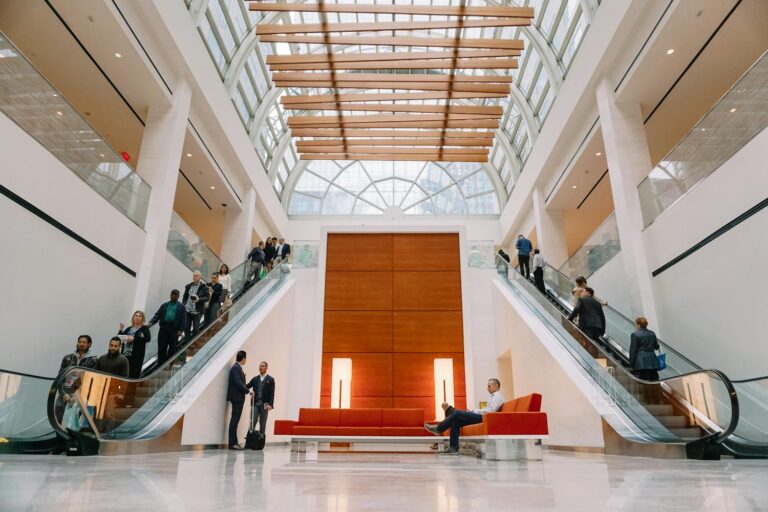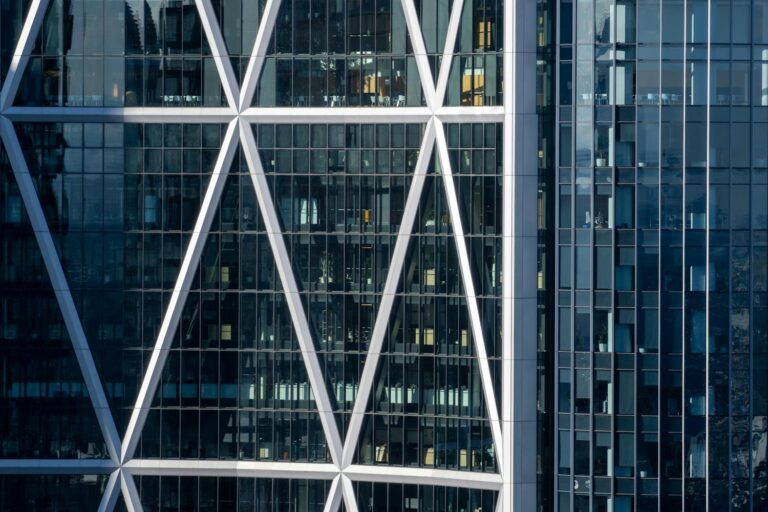When you live in a flat, you’re likely to share certain areas of the building with your neighbours, from entrance halls and staircases to lifts, gardens and bin stores. These are known as communal areas. While it might seem like a grey area in terms of legal responsibility, there are clear rules in place in the UK regarding who is responsible for maintaining, managing and using these shared spaces.
In this article, we explain the legal framework surrounding communal areas in UK flats, who is responsible for upkeep and what to do if a dispute arises.
What are communal areas?
Communal areas refer to any parts of a residential block or converted building that are shared by multiple residents. These typically include:
- Internal common parts like entrance halls, corridors, stairwells and lifts
- External areas such as gardens, courtyards, bin storage and car parks
- Roof spaces, utility cupboards, shared meters or pipes and external doors
They are not owned by individual leaseholders, but rather fall under the control of the freeholder or the property’s managing agent.
While the layout and nature of communal areas vary between developments, most modern leasehold flats will include some shared elements that require joint access and ongoing management.
Who is responsible for maintaining communal areas?
In most cases, the legal responsibility for maintaining and repairing communal areas lies with the freeholder or landlord. This is usually detailed in the lease agreement, which outlines their obligation to keep the common parts in good condition and to carry out necessary repairs and safety measures.
The landlord will typically appoint a managing agent to handle these duties on their behalf. However, even if a managing agent is involved, the ultimate legal responsibility rests with the freeholder.
To cover the costs of cleaning, lighting, maintenance and repairs, leaseholders usually pay an annual service charge. This charge may also include contributions to a sinking fund to help cover larger future costs, like lift replacement or roof repairs.
Disagreements often arise around how these charges are calculated or spent, but landlords are legally required to keep accounts and provide a breakdown of costs if requested.
What does the lease say?
Much of the legal framework around communal areas is found in the lease agreement. A well-drafted lease will contain clauses that:
- Define which parts of the building are communal
- Outline the landlord’s maintenance obligations
- Set out the leaseholders’ responsibilities for access, behaviour or usage
- Explain how service charges are collected and spent
If you’re unsure about your rights or obligations regarding communal areas, the lease should be your first port of call. A solicitor specialising in leasehold property can also help interpret unclear clauses or challenge unfair terms.
Related: I Don’t Have a Tenancy Agreement: What are My Rights?
Health and safety obligations
Landlords and managing agents have a legal duty to ensure communal areas are safe for residents and visitors. This includes compliance with several health and safety regulations, such as:
- Fire safety – The Regulatory Reform (Fire Safety) Order 2005 applies to communal areas, meaning landlords must carry out fire risk assessments, ensure escape routes are kept clear and install appropriate fire doors, signage, lighting and alarms.
- Trip and slip hazards – Floors, staircases and corridors must be kept in a good state of repair, with prompt attention given to loose tiles, worn carpets or leaks.
- Lighting and security – Adequate lighting and secure entry systems must be maintained to ensure resident safety, particularly in shared hallways and entryways.
Failure to meet these obligations can lead to legal consequences, especially if a resident is injured due to neglect or faulty upkeep. It also risks breaching the lease, which can open the door to tribunal claims.
Noise, nuisance and misuse of communal areas
Communal areas are meant for shared use – but misuse or anti-social behaviour can quickly create tension among neighbours. Common complaints include:
- Storing personal items (e.g. bikes, prams, shoes) in hallways
- Smoking in shared corridors or stairwells
- Playing loud music or gathering in communal gardens at inappropriate times
- Leaving rubbish or bulky waste in inappropriate places
These actions may breach lease terms or building rules. Leaseholders can raise complaints with the managing agent or landlord, who can issue warnings or take further action where necessary.
In some cases, breaches may escalate to legal proceedings or tribunal hearings. It’s important for residents to understand their rights and responsibilities and to report problems before they become entrenched.
What if the landlord isn’t doing their job?
If the landlord or managing agent fails to maintain the communal areas or does not carry out necessary repairs, leaseholders have several options:
- Request information – Leaseholders can formally request a summary of service charges and how money is being spent.
- Challenge charges – If the costs seem excessive or unreasonable, leaseholders can take the matter to the First-tier Tribunal (Property Chamber).
- Apply to take over management – Under the Right to Manage scheme, leaseholders in eligible blocks can form a company and take over the management of the building including the communal areas from the landlord.
- Claim for breach of lease – In serious cases, a solicitor can advise whether the landlord is in breach of their obligations and whether legal action may be appropriate.
Legal advice for leaseholders and landlords
Disputes over communal areas are common – and they’re often legally complex. Whether you’re a leaseholder unsure of your rights or a landlord facing challenges with service charge disputes or maintenance obligations, expert legal advice can make all the difference.
At Osbourne Pinner, our property solicitors can help you navigate lease agreements, resolve disputes and understand your options under landlord and tenant law.
We offer a free 30-minute consultation to discuss your case. Contact us today via the form below, call 0203 983 5080 or email [email protected] to speak to one of our property solicitors in London (Harrow, Canary Wharf or Piccadilly Circus) and Manchester.




